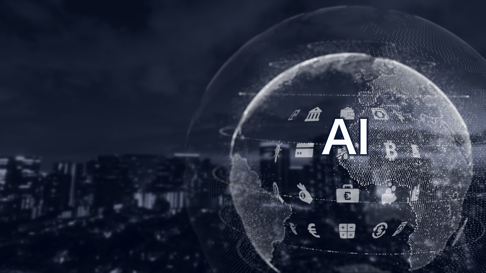Navigating the AI Revolution and its Impact Across Different Industries
As AI continues to be part of our everyday lives, we must start looking at how international standards will play a valuable and pivotal role in our businesses. These regulatory standards and compliances will help mitigate risk and benefit businesses. Being able to market your business as fully compliant with the new AI standards will give you an advantage over others. As Taimur Ijlal wrote in his book AI Governance and Cyber Security, "De-risking is not just a red tape that slows down adoptions but a strategic advantage that can protect businesses from potential risks and enhance their reputation in the market. Are you prepared for the next "industrial revolution"?

Artificial intelligence (AI) is deeply intertwined with diverse industries, revolutionizing how we operate and innovate. In the health sector, AI plays a crucial role in medical imaging analysis for disease detection, drug discovery processes, and the development of personalized treatment plans based on individual patient data. In the realm of science, AI aids researchers in analyzing vast datasets, accelerating discoveries, and contributing to breakthroughs in various scientific disciplines. Civil engineering benefits from AI by optimizing project planning, structural health monitoring, and design optimization, improving the efficiency and safety of infrastructure projects. In the software industry, AI assists in code generation, testing, and debugging, contributing to developing more robust and efficient software systems.
Communication industries leverage AI for natural language processing, speech recognition, and chatbots, enhancing customer interaction and support services. In the travel sector, AI is employed for predictive analytics, personalized recommendations, efficient logistics management, streamlining operations, and enhancing the customer experience. In education, AI facilitates personalized learning experiences, administrative task automation, and language processing for educational purposes. Lastly, AI is essential for threat detection, anomaly analysis, and automated incident response in cybersecurity, fortifying digital defenses against evolving cyber threats.
The cross-industry impact of AI extends to various sectors, offering solutions that enhance efficiency, decision-making, and overall productivity. As industries continue to embrace AI technologies, they unlock new possibilities for innovation, optimization, and addressing complex challenges specific to each domain. Brian W. Kagan wrote about computers: "Most people will not be directly involved in creating such systems, but everyone is strongly affected by them, and some people will have to make important decisions about them." This statement can easily apply to AI as well.
Though AI across different industries has the potential to change things for the better and benefit us immensely, we must recognize the risks that it poses. In the healthcare sector, integrating AI introduces concerns about data privacy and security, particularly in handling sensitive patient information. Additionally, the potential for misdiagnosis or errors in treatment recommendations by AI systems poses risks that could harm patients.
In the realm of science, AI-driven research faces challenges related to biased outcomes derived from training algorithms on biased datasets, perpetuating existing biases in scientific research. The need for interpretability in complex AI models further complicates scientists' understanding of the underlying mechanisms involved. In civil engineering, dependency on AI for critical infrastructure decisions raises reliability concerns, while the difficulty of accounting for unknown factors in AI models poses challenges in project planning.
For software applications, security vulnerabilities and the impact of biases present in training data on the fairness and performance of AI models are primary concerns. In communications, AI-powered tools raise privacy issues and the potential for manipulating information through content generation tools. The integration of AI in travel introduces security risks, such as hacking autonomous vehicles, and may lead to job displacement in the industry. In education, biases in AI applications and the risk of over reliance on technology could affect student experiences and outcomes.
Finally, in cybersecurity, AI systems are susceptible to adversarial attacks and may produce hallucinations impacting the accuracy of threat detection systems and when it's wrong its confidently wrong . Addressing these concerns requires careful ethical considerations, ongoing monitoring, and collaboration between stakeholders across each industry. Organizations must prioritize transparency and accountability in developing and deploying AI technologies to mitigate potential risks. Additionally, fostering a culture of continuous learning and adaptation will be essential in navigating the evolving landscape of AI in various industries. Stay tuned as policies change and frameworks arrive, and be vigilant in this ever-changing technological revolution.
